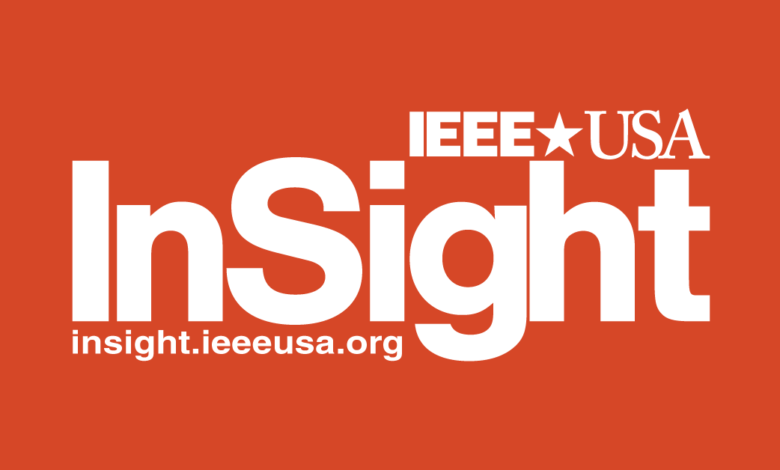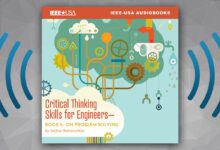
While many of us arrive home after work and spend a few hours relaxing in front of the television, IEEE member Sampathkumar Veeraraghavan begins his other job developing technologies for the benefit of humanity. Almost a decade ago, as a student, Veeraraghavan- currently a full-time software engineer at Oracle Corporation in Burlington, Mass.-founded “Brahmam,” a technology-based initiative that addresses humanitarian challenges in developing nations. Among the initiative’s successes: a screening system to detect autism, a large-scale computing system that collects information about physically and mentally disabled individuals, and educational computer programs for children and women in rural areas with limited resources and infrastructure.
“When I travel back to India every year, and visit the schools and the children and parents who benefitted from my technologies, I am motivated to continue this work. The children’s smiles and the parents’ relief and thanks make me forget all of the long hours that I put into this effort,” said Veeraraghavan.
Veeraraghavan developed the automated screening system for autism-a 30-minute screening procedure that assesses a child’s cognitive, social interaction, language, fine motor and gross motor skills-to identify developmental delays and signs of autism in young children.
“This screening system has been implemented in more than 15 sites in India and has enabled children to be diagnosed with autism earlier in life, which has increased early autism intervention programs for these children and hopefully improved their outcome in life,” said Veeraraghavan.
The online disability information database, which has been deployed in south India and contains data of more than one million people, enables disability prevalence patterns to be uncovered and disability prevention measures to be initiated.
For his technological innovations that address global humanitarian challenges, Veeraraghavan received the 2013 IEEE-Eta Kappa Nu Outstanding Young Professional Award and IEEE/IEEE-USA’s 2011 New Face of Engineering award. He earned his master’s degree in electrical engineering from Tufts University in 2010, and his bachelor’s degree in computer science and engineering from India’s Anna University in 2005.
“I think every IEEE member has a social responsibility to positively influence society through technological innovations and by mentoring students from underrepresented groups. When the community grows, the region grows; when the region grows, the nation grows; and when the nation grows, there will be global growth,” said Veeraraghavan.
Veeraraghavan is not the only U.S. IEEE member who has taken to heart IEEE’s mission of “advancing technology for humanity.” For decades, U.S. IEEE members have pursued a wide range of humanitarian engineering projects that have improved the quality of life for underserved populations. Education, health care, reliable power, communication, and clean water technology projects led by U.S. IEEE members in Haiti, Peru, Nicaragua and other countries have made a tremendous difference.
Twenty seven groups pursuing humanitarian technology projects have registered as Special Interest Groups on Humanitarian Technology (SIGHTs), which was launched in December 2011 by the IEEE Humanitarian Ad Hoc Committee. Registering as a SIGHT offers a number of benefits, including seed grants of $250 and an ability to learn from IEEE members about other humanitarian projects, lessons learned and best practices.
IEEE is also a founding member of Engineering for Change (E4C), along with the American Society of Mechanical Engineers and Engineers Without Borders-USA. E4C is part of a global community of organizations and individuals promoting sustainable and accessible tech-based solutions to problems facing underserved communities. Sustainable is a key word here, for a humanitarian technology project could be built by outsiders, but it must be maintained by the local community.
With sponsorship from the IEEE Seattle Section, San Francisco Bay Area Council and Region 6, the third annual IEEE Global Humanitarian Technology Conference was held in San Jose, Calif., in October. The conference promotes the role engineering, science and technology can play in fostering positive and meaningful solutions to major challenges facing billions of disadvantaged people around the world.
The conference featured papers, keynotes, panel sessions and tutorials that highlighted new technologies, business models and social entrepreneurship initiatives that can help improve the livelihoods of the under-privileged. The conference aims to stimulate the growth of a worldwide community that places priority on developing technology for sustainable human prosperity.
“I would love to see the IEEE continue its path to fulfilling many of its volunteers’ desires to be a part of providing solutions to those disadvantaged persons in the world with technology solutions. It would thrill me to see sustainable projects growing and increasing in value and reach over the next five years,” said conference chair Keith Moore.
Abby Robinson is an IEEE Senior Member and freelance writer based in the Washington, D.C., area.






